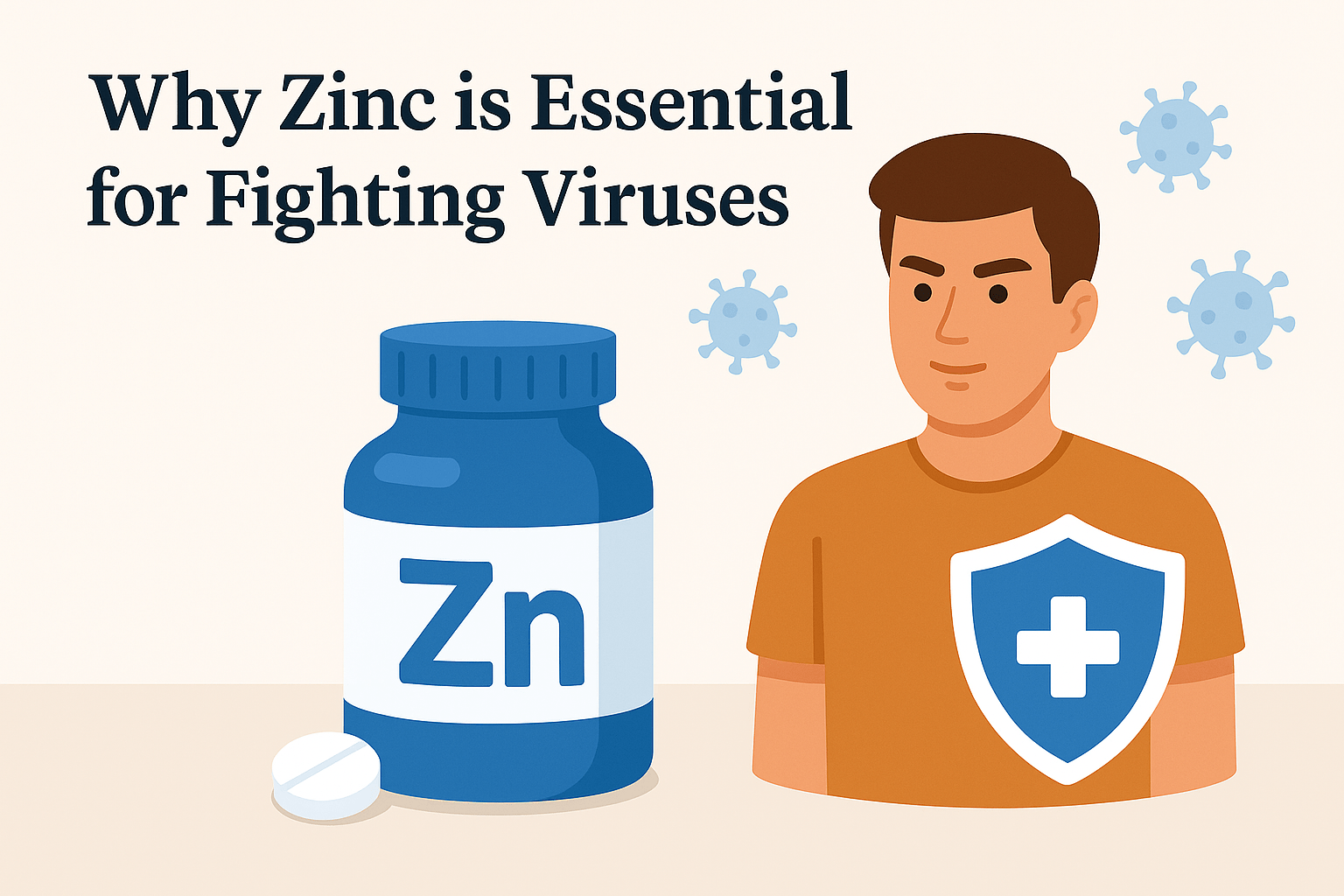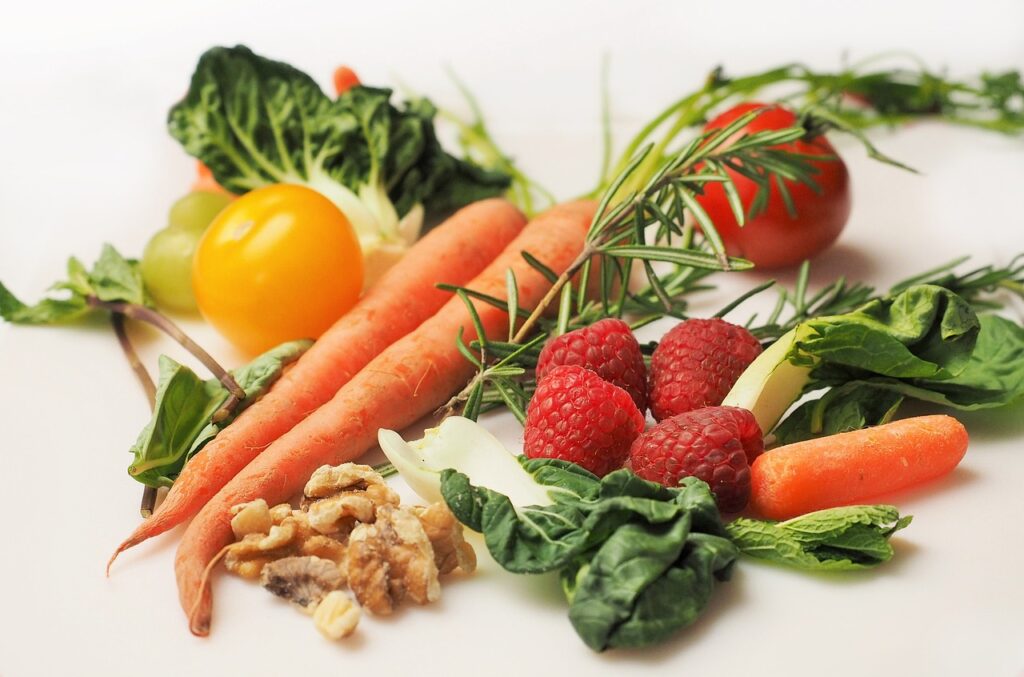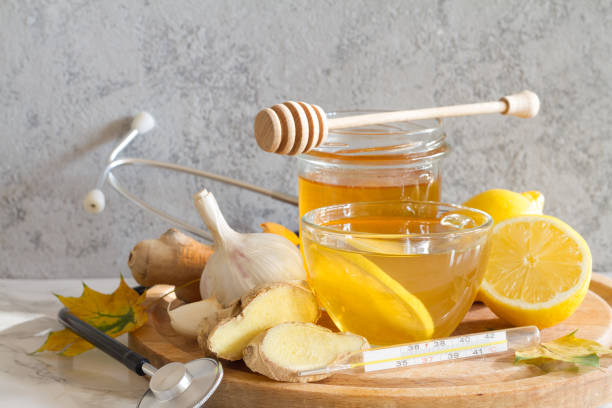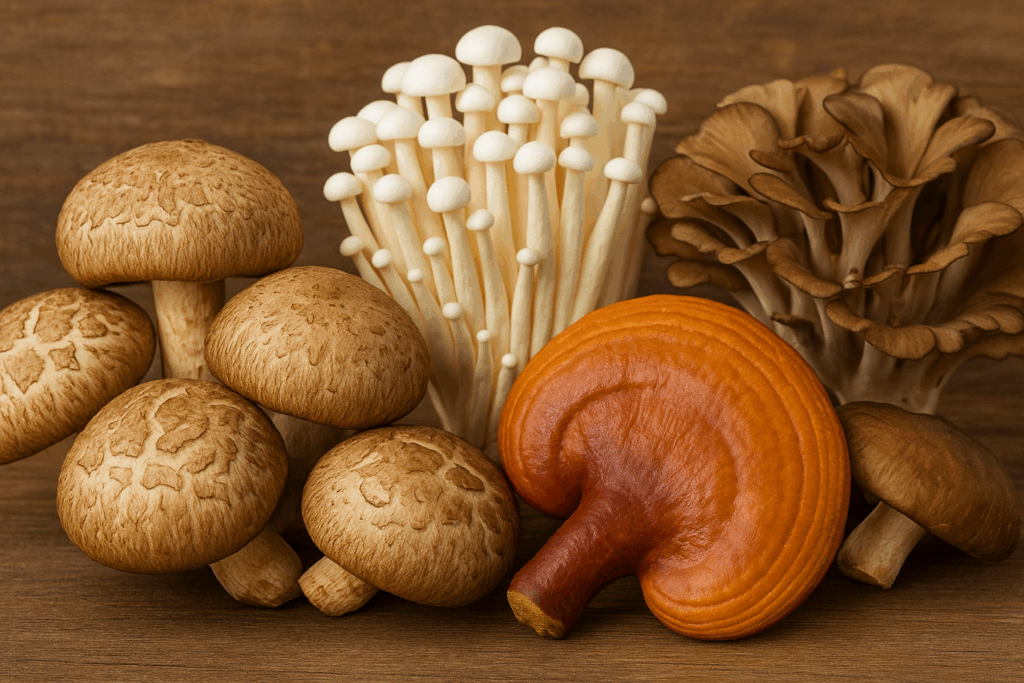When it comes to keeping your immune system strong, zinc often flies under the radar. But it shouldn’t. Zinc is like your immune system’s behind-the-scenes coach—quietly making sure your defense cells are alert, responsive, and ready for action. From speeding up wound healing to reducing the duration of the common cold, zinc plays a central role in how your body fights off infections. In this article, we’ll explore how zinc and immune function are connected, why zinc is so critical in viral defense, and the best ways to ensure you’re getting enough through food or supplements.
How Zinc Supports Immune Function
Zinc may be a trace mineral, but its impact is anything but small. It’s involved in the development and function of immune cells like T-cells and natural killer cells—your body’s first responders to infection. Studies show that zinc and immune function are closely linked, especially when it comes to viral infections. Zinc not only helps prevent viruses from replicating, but also reduces inflammation, helping your body bounce back more quickly. When you’re low in zinc, your immune response can become sluggish, making you more susceptible to colds, flus, and other infections.
Signs You Might Be Zinc Deficient
Many people don’t realize they might be low in zinc until they find themselves getting sick more often than usual. Common signs of zinc deficiency include frequent colds, slow wound healing, brain fog, and even changes in taste or smell. Stress, aging, chronic illness, and a poor diet can all lower your zinc levels. And vegetarians or those who consume lots of grains (which contain phytates that block zinc absorption) may also be at risk. Since zinc and immune function go hand-in-hand, maintaining adequate levels is crucial—especially during cold and flu season or in times of high stress.
Best Food Sources of Zinc
Thankfully, getting more zinc into your diet isn’t too difficult. Some of the richest sources include oysters (which are practically zinc bombs), red meat, poultry, chickpeas, pumpkin seeds, and lentils. Even dairy products, eggs, and whole grains provide modest amounts. If you’re relying on plant-based sources, soaking or sprouting legumes and seeds can help improve absorption. Supplements are also an option—especially if you’re recovering from illness or have a known deficiency—but it’s best to talk to a healthcare provider first. Remember, the zinc and immune function connection only works well when zinc is balanced, not overloaded.
Zinc as a Natural Antiviral Support
Zinc has become a buzzword in recent years, especially in conversations about viral illness—and for good reason. Research has shown that zinc may reduce the severity and duration of colds, and even help inhibit certain viral processes. It’s not a cure-all, but it’s certainly a powerful ally in your wellness toolkit. Whether you’re fighting off a cold, recovering from an infection, or just trying to stay well during flu season, zinc and immune function should be part of the conversation. A little daily attention to your mineral intake can go a long way toward building a more resilient immune system.
References
- National Institutes of Health – Zinc Fact Sheet
https://ods.od.nih.gov/factsheets/Zinc-HealthProfessional/ - Harvard School of Public Health – Zinc
https://www.hsph.harvard.edu/nutritionsource/zinc/ - PubMed – Zinc and immune function: the biological basis of altered resistance to infection
https://pubmed.ncbi.nlm.nih.gov/9701160/ - Cleveland Clinic – Health Benefits of Zinc
https://health.clevelandclinic.org/why-your-body-needs-zinc/ - Mayo Clinic – Zinc for colds: The final word?
https://www.mayoclinic.org/diseases-conditions/common-cold/expert-answers/zinc/faq-20057769




